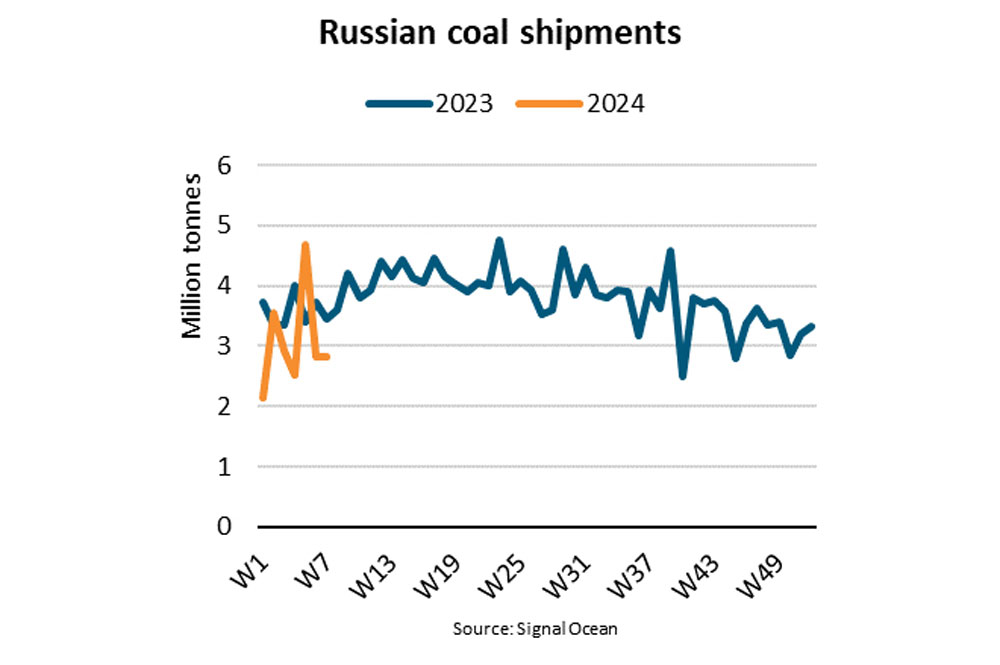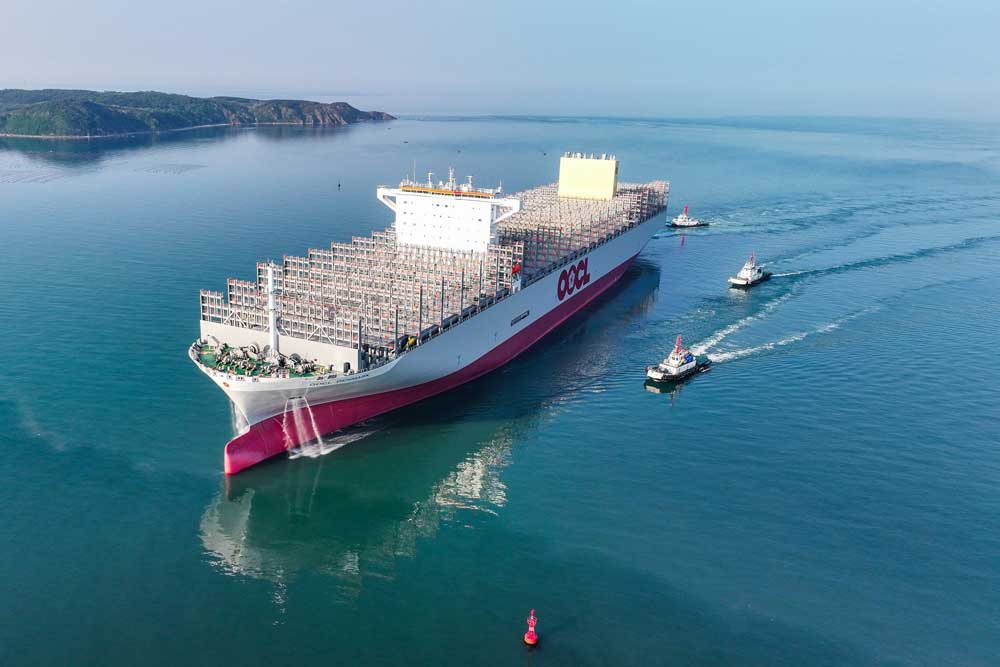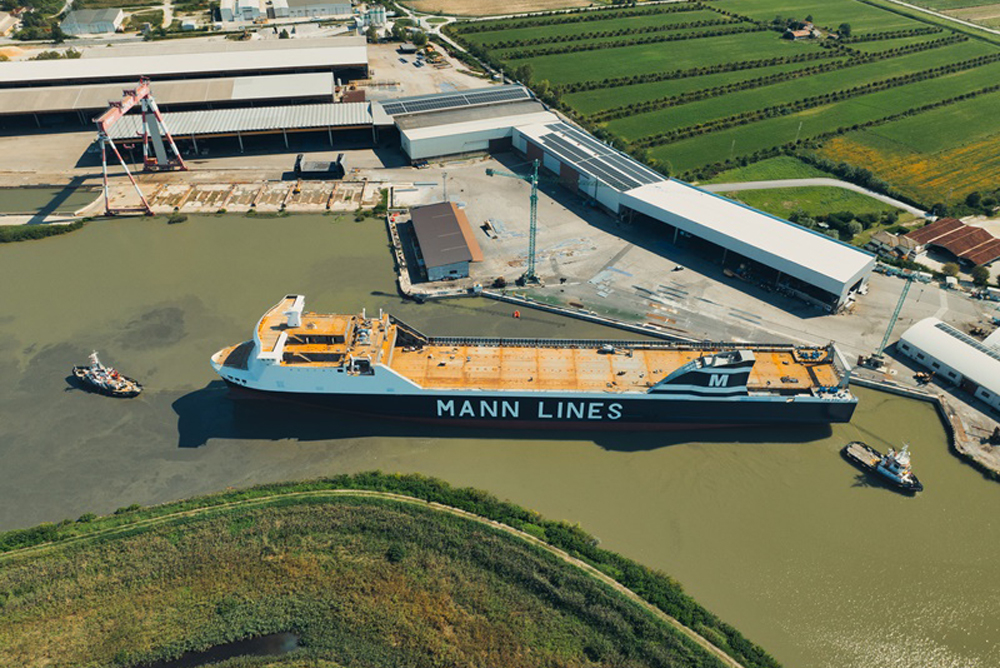Russian coal shipments fell by 14% in the first seven weeks of the year due to the sanctions, according to Bimco.
“Volumes have been gradually declining since October 2023, when the logistical problems began to emerge. Two years after the start of the war in Ukraine, sanctions against Russia are limiting the country’s ability to export coal,” says Filipe Gouveia, Shipping Analyst at Bimco. [ds_preview]
41% of coal goes to China
A large proportion of Russian coal is sourced from Siberia and transported to Russian ports by rail. Since the start of the war in Ukraine, railroads in Russia have been under pressure as sanctions push Russian coal exports eastwards. In 2023, 41% of Russian coal exports were destined for China.
The sanctions against Russia have further increased the pressure on logistics, which has been reflected in the reduced effectiveness and reliability of rail transport since October 2023. Russian rail transport is reportedly experiencing difficulties in procuring spare parts such as special lubricants, protected bearings and electronic components. Efforts to circumvent this problem by replacing imports with domestic equipment have failed, as these spare parts are often of lower quality.
“The overall impact of poor Russian logistics on the dry bulk market appears to be marginal, as global coal supply is ample. Since October 2023, global coal shipments have increased by 7% year-on-year despite the loss of Russian coal. So it seems Russia is bearing the brunt of the impact,” says Gouveia.
The impact of lower coal shipments on transportation distances also appears to be here to stay. Shipments from Russia have a below-average range but have been replaced by shipments of similar distances.
Exports by land could increase
Despite the obstacles Russia faces, the government seems determined to increase coal exports to China. Russia is working to increase coal mining and remove bottlenecks in its infrastructure. Two major railroad lines in Siberia are being electrified and an agreement has been reached to build a new railroad bridge between Russia and China. If Russia is successful, overland exports to China could increase and replace some of the Russian coal shipments.
“Even if Russia invests in infrastructure, it is possible that total coal exports to China will not increase significantly. The IEA estimates China’s coal demand could peak in 2023, limiting further export growth. In addition, it could be difficult for Russia to find new trading partners given the sanctions and competition from other exporters such as Indonesia and Australia,” says Gouveia.

















